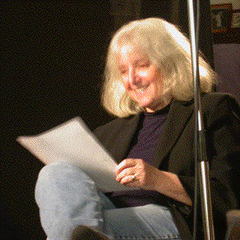Linkedin
I received an E-mail last week, "Someone in Linkedin wants to contact you." For those of you who don't know what "linked in" is --its some kind of connection service that I joined a while ago. I read that a blogger, Matt Cornell, had put out to the universe a question about "How do you start a consulting service"? Having developed my thoughts about how to start a private practice (in my case, a psychotherapy practice) I felt like writing a response to the question, and this meant joining Linkedin. It was an investment, something like $2oo, more than I should spend, but I was too curious too just forget it. I joined, having no idea of what it was. It turned out to be a service that connects people. Linked in went through my address book, and told me every person who was there who was also a member of Linkedin. I then was given the option of being able to invite anyone on that list to become one of my Linkedin connections. I invited everyone I felt comfortable inviting. From there it showed me everyone who my connection was also connected to, and of course it turned out to include many many people. It is built on the idea of degrees of connection, or whatever that is called. It is based on the theory that everyone is only six degrees away from connecting to what should be very distant other people. So if I know 50 people (for example) and each one of them knows 50 other people, I can get to those other people relatively other easily. And of course those 2nd degree of connection also know 50 other people, and this is then a rapidly growing chain of connections --its an exponentially growing list of connections. I was instantly intrigued by the possibilities of Linkedin, and I was glad I had moved on my impulse to join the Linkedin fraternity (or sorority), although what use it would ever be for me remained unknown.
Then, on the first day of my large class last spring, a young man who was a student in the class came over to me at the break and said "I saw you on Linkedin and invited you to become one of my connections." I then remembered getting an invitation from someone I didn't know. I had accepted the invitation, still having no idea of who the person was. Mystery solved. I have continued to get invitations to be people's connection in Linkedin, and the list of spiraling connections continues to grow. However how this might be useful to me had not shown itself until this past week when this E-mail arrived in my in-box, saying that someone wanted to get in touch with me.
A USA Reporter on "Green Guilt"
I responded and this took me to a message from a reporter at USA Today, Janet Kornblum. She was writing an article about "Green Guilt" or the guilt that many of us are experiencing when we feel that we are failing to be "green" enough. As a member of Linkedin, she had done a search there, using the term "psychologist" and "guilt." I don't often write about my life as a scientist here, but in my professional life I have been conducting research on guilt for over a decade. So Janet's search brought her right to my doorstep. She wanted to interview me on the topic, and I accepted her invitation. People often complain about what the press does to them, but I have generally had good experiences with the press, and so I didn't hesitate in accepting Janet's invitation, I thought it would be fun. It was.
How to change public attitude
We had a great conversation about the guilt many of us feel about our various environmentally wasteful habits. We branched out to discuss how one changes public opinion about social issues. I discussed the change we have all seen in attitudes about smoking (for example); it used to be considered cool and "adult" to smoke. Today smokers feel like junkies, sneaking their cigarettes in back alleys so to to speak. It used to be considered cool to beat your wife if she "misbehaved." When police officers were called out to deal with a domestic violence situation, they would take the guy out to walk around the block and express their sympathy for them, living with such a difficult woman. Today batterers get arrested. Public attitudes have changed, domestic violence is a punishable crime. Women who are being beaten don't always keep it such a secret, and this all is the result of the women's movement and a massive national campaign put on by the Family Violence Prevention Fund, centered in San Francisco. Public attitudes have changed dramatically, much as attitudes about smoking have changed. And so it goes with environmental issues; a focus on the environment used to be the baby of a fringe group in our society. Today it is increasingly everyone's baby. The result thus far is a growing massive public movement and awareness of global warming and the tenuous state of our planet. Some months ago I wrote a blog about global warming, while feeling guilty about my own horrendous overuse of paper. I have plenty of green guilt and I had fun talking to Janet about the issue.
Guilt-induction is not an effective vehicle of social change
Making people feel guilty about a social issue is not an effective strategy for promoting change. Those so-called trainings based on making European Americans feel guilty about "white privilege" in order to decrease racism are doomed to failure. When people are made to feel guilty, the effect is to raise their defenses. Defensive people can't hear about other's experiences. Raising defensiveness is a terrible strategy for anything. This has to be as true about environmental issues, as it is for overcoming racism or sexism.
How guilty are we feeling as a nation about polluting the environment and using up natural resources? I used to think there were no private solutions to public problems. I still believe this, but with less conviction. It may be that if enough of us were environmentally conscious and were willing to act on our belief, there might be a small dent in the massive damage we are doing to the environment. But how great would that be, if nothing bigger happens? Probably very limited. Most people have no disretionary income. They don't have the personal resources to buy the part-electric car which is so expensive. Most of us don't have the money to buy or rent a home in the city, so instead we have to live in the suburbs where housing is cheaper, and commute to work in the city, adding to the environmental burden. How much good is it for us to recycle? What does it mean to the environment for large numbers of people to recycle? How is our garbage adding to global warming? What effect is our recyling our household garbage having on the larger environment? I don't have an answer to these questions. I suspect that things we are able to do as private individuals are relatively ineffective in saving our planet from the bigger effects of a basically non-sustainable economic organization. How many of us are feeling guilty for the fact that the United States uses more energy than any other nation?
A Mind Experiment about Guilt: What are the benefits and what are the shadows?
What is the benefit of feeling guilty about how we live? Does feeling guilty really change behavior? There are various types and degrees of guilt. Some kinds of guilt allow us to live in social groups peacefully. Here's a mind experiment. Imagine that someone has harmed you. Then imagine that the person who harmed you feels guilty about it. Next imagine that someone has harmed you and feels no guilt about it. Now imagine in what condition you could or would forgive the person. In the first condition, when the person feels guilt about harming you, there's a good chance you would be forgiving. But in the second condition, when the person who harmed you feels no guilt about it, you'd be far less likely to forgive them. Guilt is an essential ingredient in the process of forgiving. This is the positive function of guilt. But ruminative guilt, or guilt for imaginary crimes, is connected with depression. Too much guilt is inhibiting and life destroying. What about the environment? Does it make sense for me to feel guilty about my use of paper? I don't have the answer to this one, but if someone reading this has some ideas about it, please leave a comment.
Sunday, September 9, 2007
Subscribe to:
Post Comments (Atom)


No comments:
Post a Comment